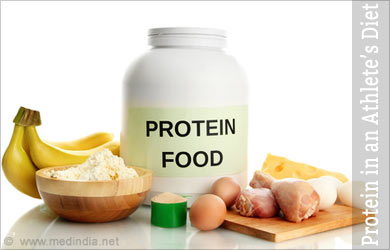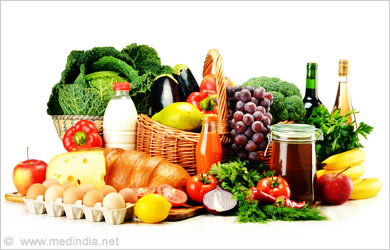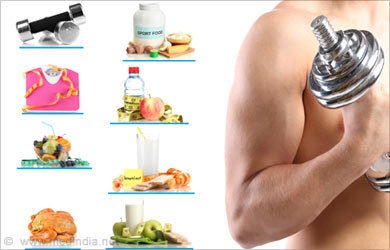About
All sportspersons—whether they are long distance runners or swimmers or play tennis, cricket or soccer, spend more energy and need more nutrition to fuel their intense physical activity. Consuming sufficient protein should be a top priority for athletes and a detailed study of the role of protein in an athlete’s diet will explain why protein is so important for athletes.
Recovery and repair – Proteins are the building blocks of muscles. Exercise leads to wear and tear of muscles. Consuming sufficient amounts of protein will ensure speedy muscle recovery.

Muscle gain – Proteins also play a vital role in increasing muscle mass. This property is essential to strength athletes like wrestlers and body builders. The requirement of protein for strength sports is higher than for endurance sports.
Enzyme synthesis – Enzymes are responsible for myriad metabolic processes in the body and a diet deficient in protein will have serious repercussions.
Satiety – Curbing hunger is an important function of proteins. This is a beneficial property to take advantage of for athletes who are looking to lose weight.
How much protein does an athlete require?
Protein requirement is largely based on the type of sport an individual is engaged in – endurance or strength. Another criterion is the body mass. The table below gives the protein requirement for various sports.

| Group | Protein intake (g/kg/day) |
| Sedentary men and women | 0.8-1.0 |
| Elite male endurance athletes | 1.6 |
| Moderate-intensity endurance athletes (a) | 1.2 |
| Recreational endurance athletes (b) | 0.8-1.0 |
| Football, power sports | 1.4-1.7 |
| Resistance athletes (early training) | 1.5-1.7 |
| Resistance athletes (steady state) Female athletes | 1.0-1.2~15% lower than male athletes |
(a) Exercising approximately four to five times per week for 45-60 min
(b) Exercising four to five times per week for 30 min
Source: Burke and Deakin, Clinical Sports Nutrition, 3rd Edition, McGraw-Hill Australia Pty Ltd, 2006
How to choose a high protein food?
The body does not store protein like it does carbohydrate and fat, thus making it essential to include protein in the diet. On digestion, a protein is broken down to amino acids. These can be classified as essential and non-essential. Essential amino acids cannot be produced by the body but the non-essential ones can.
Animal sources of protein have a wider range of the essential amino acids than vegetarian sources. Including a variety of foods in the diet will ensure intake of all the amino acids.
Lean cuts of meat, eggs, sea food and dairy are the animal sources of protein. Legumes like peas, kidney beans and soya are vegetarian sources.
Below is a list of protein rich foods which provide 10g of protein per serving and have low to moderate fat content.

| Animal Foods | Plant Foods |
| 2 small eggs 30 g (1.5 slices) reduced fat cheese 70 g cottage cheese 1 cup (250 ml) low-fat milk 35 g lean beef, lamb or pork (cooked weight) 40 g lean chicken (cooked weight) 50 g grilled fish 50 g canned tuna or salmon 200 g reduced fat yoghurt | 4 slices (120 g) wholemeal bread 3 cups (90 g) wholegrain cereal 2 cups (330 g) cooked pasta 3 cups (400 g) cooked rice 3/4 cup (150 g) lentils or kidney beans 200 g baked beans 120 g tofu 60 g nuts or seeds 300 ml soy milk |
Source- http://www.ausport.gov.au/ais/nutrition/factsheets/basics/protein_-_how_much
Protein supplements - Many athletes take protein supplements like whey, casein or branched chain amino acids to make up for the body’s protein requirement after exercise. This is usually in the form of a protein powder which can be mixed in water or milk.
Improper utilization of protein
When there is a deficient intake of carbohydrate, the body breaks down muscle (protein) for energy. Providing energy for an activity is not a primary function of proteins. An athlete must ensure that adequate carbohydrate is consumed to spare the utilization of protein as an energy source.
Adverse effects of improper protein intake
- Too much or too little protein can have adverse effects on health.
- In an existing renal condition, excess protein will cause further damage to the kidneys.
- It has been found that excess protein causes leeching of calcium out of the bones.
- A high protein diet can prove to be expensive.
- Low protein intake can result in decreased muscle strength, power and inability to make optimal gains after training.
Having read about the importance of protein in an athlete’s diet, it is essential for an athlete to include this vital nutrient in his or her diet. Protein is essential in maintaining body structure and without it any amount of training will not result in muscle growth, strength and power.

Food choices for both vegetarian and non-vegetarian athletes are ample and will be best utilized by the body when consumed within an hour after exercise. Consumption of protein must be monitored and care must be taken not to ingest too much or too little protein (whether in food or supplement form), as both have undesirable effects.





